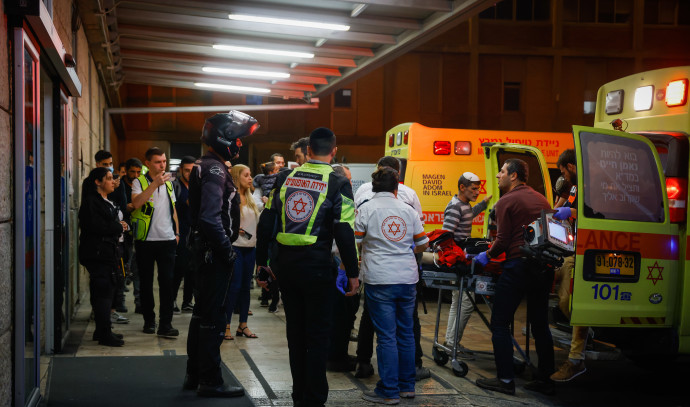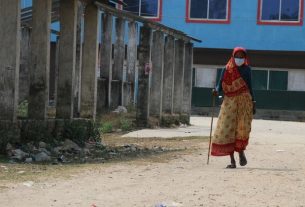The Treasury must immediately allocate significant amounts of money for rehabilitation hospitals where they are especially lacking, in Jerusalem and the North, said Knesset Health Committee chairman MK Yonatan Mashriki.
The shortage of rehabilitation beds was serious even before the war, but now it is much worse, the Shas MK said on Wednesday during the committee’s discussion of the proposed inpatient- and home- rehabilitation services to war victims, including amputees.
He added that the Finance Ministry has not explained why it has frozen the budget promised to the Hadassah Medical Organization (HMO) for its construction of a rehabilitation hospital. The committee will not discuss the transfer of additional funds to the health system until this allocation is released.
HMO Director-General Prof. Yoram Weiss told the committee that the number of hospital beds for rehabilitation of Israeli patients who have been wounded, injured, or suffer from disease complications like stroke or a heart attack is much lower than standard. In two months, HMO’s rehabilitation hospital is set to open on Jerusalem’s Mount Scopus with 150 rehabilitation beds, equipped with the most innovative and advanced methods – but these will not be enough.
Weiss added that HMO has already committed itself to pay suppliers but now the Finance Ministry has frozen its allocation. “There must be an equal distribution of resources for rehabilitation among all parts of the country,” he added. “Each rehab patient needs care for one to three years, and the wounded of the current war will need prolonged rehabilitation.
Rehab will receive special budget from Health Ministry
Health Ministry Director-General Moshe Bar Siman Tov promised that approval procedures on the issue would be expedited, and that any institution that is ready with rehab beds by the end of 2024 will receive a budget from the ministry.
Prof. Erez On, the director of the Poriya Medical Center in Tiberias, also warned that the number of rehabilitation beds in the North is only about a quarter of all the beds in Israel, and there isn’t a single rehab bed for children there. He added that it’s imperative to speed up the procedures on the matter; in about a year, his hospital is to open a day-rehab center.
MK Tatiana Mazarsky (Yesh Atid) criticized the Health Ministry for its slow budgeting of rehabilitation facilities and demanded that the north be placed at the top of the list of priorities.
Dr. Yaron Sachar, director of the ministry’s rehabilitation department, admitted that “this war is a huge event on any scale in which hundreds of wounded civilians and soldiers will need rehabilitation over a long period. Already there are 4,500 wounded and dozens of new amputees, and many cases with more than one problem.
Economist Daniel Tor from the Treasury’s wage division conceded that there are many long-standing challenges in hospitals and health funds and that discussions about the problems are being held, but he did not offer an immediate solution.
Gaya Ofer, health coordinator in the budgets division, maintained that the issue is being dealt with quickly with the Health Ministry, which knows the needs of the whole system and not just the hospitals. She refused to answer the committee chairman’s question as to why the budget promised to Hadassah for the establishment of the rehabilitation hospital was frozen.
Dr. Liron Kalina of the Beit Loewenstein Rehabilitation Center in Ra’anana said that it has 20 vacant rehabilitation beds, and in an emergency about 100 more can be added.
Kinneret Kala, who is in charge at the National Insurance Institute department helping victims of hostilities, said the NII pays the health funds and has sent social workers to the hospitals to advise war victims of their rights.


